I am working on a Booking App ,where there are different time slots in a day(for example 11:30,12:30) in which users can book their ride.But I don't want the booking option to be open for the whole day,it should just be open from a certain time until the next day.I've heard this can be done by cloud functions,if so ,can anyone tell me how?
This is my BookingActivity.java
public class BookingActivity extends AppCompatActivity {
private DatabaseReference mUser;
private DatabaseReference mTime1;
private DatabaseReference mTime2;
private DatabaseReference mCount1;
private DatabaseReference mCount2;
private FirebaseAuth mAuth;
private static final String TAG = "BookingActivity";
@Override
protected void onCreate(Bundle savedInstanceState) {
super.onCreate(savedInstanceState);
setContentView(R.layout.activity_booking);
mAuth = FirebaseAuth.getInstance();
Toolbar toolbar = findViewById(R.id.toolbar);
setSupportActionBar(toolbar);
FirebaseUser fu = mAuth.getCurrentUser();
final User newUser = new User(fu);
mUser = FirebaseDatabase.getInstance().getReference().child("Users");
mTime1 = FirebaseDatabase.getInstance().getReference().child("3:30");
mTime2 = FirebaseDatabase.getInstance().getReference().child("5:30");
mCount1 = FirebaseDatabase.getInstance().getReference().child("Count@3:30");
mCount2 = FirebaseDatabase.getInstance().getReference().child("Count@5:30");
findViewById(R.id.button1).setOnClickListener(new View.OnClickListener() {
@Override
public void onClick(View view) {
Update(mTime1,mCount1,newUser);
}
});
findViewById(R.id.button2).setOnClickListener(new View.OnClickListener() {
@Override
public void onClick(View view) {
Update(mTime2,mCount2,newUser);
}
});
}
public void Book(DatabaseReference mDatabase,User user) {
Long tsLong = System.currentTimeMillis()/1000;
String ts = tsLong.toString();
HashMap<String,String>datamap = new HashMap<>();
if(user!=null) {
datamap.put("Name", user.getUserName());
datamap.put("Email", user.getUserEmail());
datamap.put("timestamp",ts);
datamap.put("Limit", user.setRating("1"));
}
mDatabase.push().setValue(datamap);
}
public void Update(final DatabaseReference mDatabase, DatabaseReference mref,final User user) {
mref.runTransaction(new Transaction.Handler() {
@NonNull
@Override
public Transaction.Result doTransaction(@NonNull MutableData mutableData) {
Integer CurrentValue = mutableData.getValue(Integer.class);
if(CurrentValue==null) {
return Transaction.success(mutableData);
}
else if(CurrentValue<5 && user.getRating().equals("0")){
mutableData.setValue(CurrentValue + 1);
Book(mDatabase,user);
runOnUiThread(new Runnable() {
public void run() {
final Toast toast = Toast.makeText(BookingActivity.this,"Booked Successfully",Toast.LENGTH_SHORT);
toast.show();
}
});
}
else{
runOnUiThread(new Runnable() {
public void run() {
final Toast toast = Toast.makeText(BookingActivity.this,"Maximum Limit Reached",Toast.LENGTH_SHORT);
toast.show();
}
});
}
return Transaction.success(mutableData);
}
@Override
public void onComplete(@Nullable DatabaseError databaseError, boolean b, @Nullable DataSnapshot dataSnapshot) {
Log.d(TAG, "Updating likes count transaction is completed");
}
});
}
@Override
public boolean onCreateOptionsMenu(Menu menu) {
MenuInflater inflater = getMenuInflater();
inflater.inflate(R.menu.menu, menu);
return true;
}
public boolean onOptionsItemSelected(MenuItem item) {
switch (item.getItemId()) {
case R.id.menuLogout:
FirebaseAuth.getInstance().signOut();
finish();
startActivity(new Intent(this, MainActivity.class));
break;
}
return true;
}
